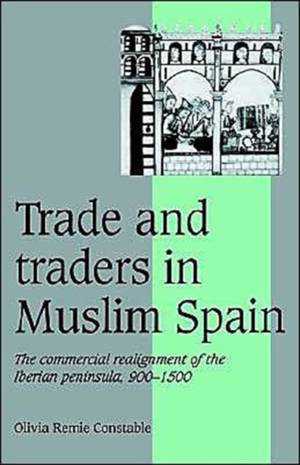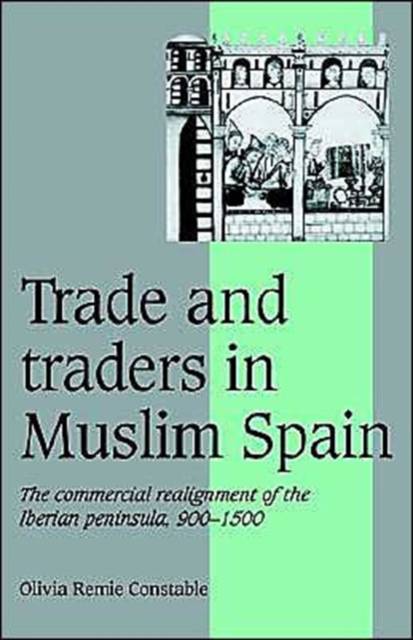
Bedankt voor het vertrouwen het afgelopen jaar! Om jou te bedanken bieden we GRATIS verzending (in België) aan op alles gedurende de hele maand januari.
- Afhalen na 1 uur in een winkel met voorraad
- In januari gratis thuislevering in België
- Ruim aanbod met 7 miljoen producten
Bedankt voor het vertrouwen het afgelopen jaar! Om jou te bedanken bieden we GRATIS verzending (in België) aan op alles gedurende de hele maand januari.
- Afhalen na 1 uur in een winkel met voorraad
- In januari gratis thuislevering in België
- Ruim aanbod met 7 miljoen producten
Zoeken
Trade and Traders in Muslim Spain
The Commercial Realignment of the Iberian Peninsula, 900 1500
Olivia Remie Constable
€ 56,95
+ 113 punten
Omschrijving
This volume surveys Iberian international trade from the tenth to the fifteenth century, with particular emphasis on commerce in the Muslim period and on changes brought by Christian conquest of much of Muslim Spain in the thirteenth century. From the tenth to the thirteenth century, markets in the Iberian peninsula were closely linked to markets elsewhere in the Islamic world, and a strong east-west Mediterranean trading network linked Cairo with Cordoba. Following routes along the North African coast, Muslim and Jewish merchants carried eastern goods to Muslim Spain, returning eastwards with Andalusi exports. Situated at the edge of the Islamic west, Andalusi markets were also emporia for the transfer of commodities between the Islamic world and Christian Europe. After the thirteenth century the Iberian peninsula became part of the European economic sphere, its commercial realignment aided by the opening of the Straits of Gibraltar to Christian trade, and by the contemporary demise of the Muslim trading network in the Mediterranean.
Specificaties
Betrokkenen
- Auteur(s):
- Uitgeverij:
Inhoud
- Aantal bladzijden:
- 352
- Taal:
- Engels
- Reeks:
- Reeksnummer:
- nr. 24
Eigenschappen
- Productcode (EAN):
- 9780521565035
- Verschijningsdatum:
- 13/07/1996
- Uitvoering:
- Paperback
- Formaat:
- Trade paperback (VS)
- Afmetingen:
- 140 mm x 204 mm
- Gewicht:
- 462 g

Alleen bij Standaard Boekhandel
+ 113 punten op je klantenkaart van Standaard Boekhandel
Beoordelingen
We publiceren alleen reviews die voldoen aan de voorwaarden voor reviews. Bekijk onze voorwaarden voor reviews.









